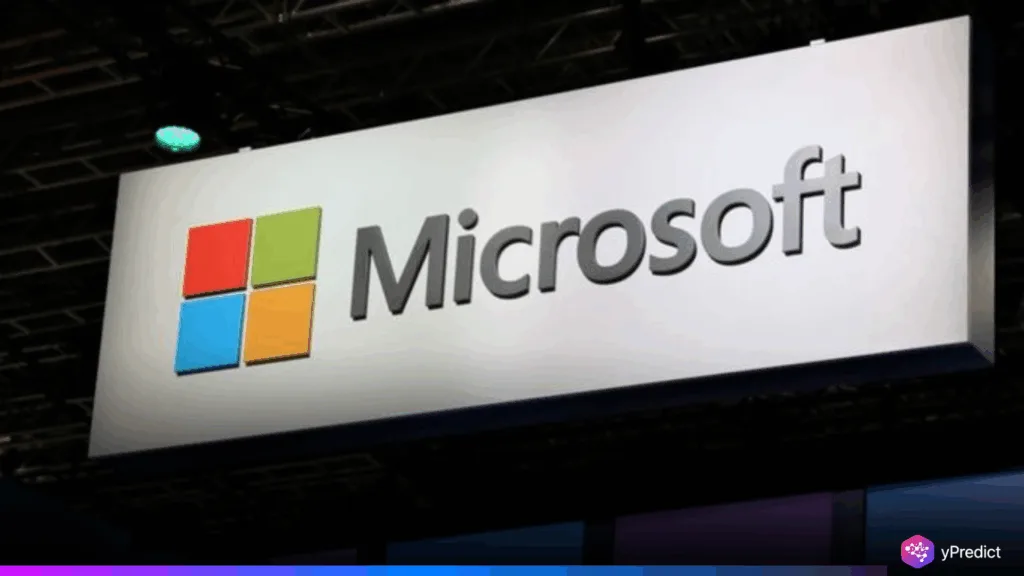
Microsoft’s plans to accelerate the development of its AI chip have been significantly delayed. Previously projected to power data centers by late 2025, its next-generation Braga chip will enter mass production in 2026. The chip is a 2023 replacement for the Maia chip and is internally known as Braga. It has suffered from high turnover, staff shortages, and unforeseen design changes.
Microsoft’s larger plan to lessen its dependency on Nvidia chips is at risk. Additionally, the delay threatens its ability to lead the custom processor market. Therefore, Microsoft’s slow progress could lead to a wider performance and cost gap, given that competitors are implementing high-performing chips.
Microsoft’s AI Chip Vision Faces Delays
Microsoft’s Braga AI chip’s delay has caused obstacles to its strategic push into custom processors. Although the Maia chip set the stage for this shift, its scale-up is still constrained.
According to insiders, Braga will probably fall behind Nvidia’s most recent Blackwell chip. Additionally, Microsoft’s plans for data center optimization may be threatened. The company is reportedly redistributing teams internally to address the delay and reduce future risks.
Meanwhile, Microsoft continues to invest in in-house silicon, but without momentum, its hardware roadmap risks losing investor confidence.
Google and Amazon Outpace Microsoft in Chip Race
The delay gives competitors a competitive advantage, such as Google and Amazon. Google’s AI services already rely heavily on its Tensor Processing Units (TPUs). In April 2025, it launched its seventh-generation TPU. This TPU aims to deliver faster performance for demanding AI applications.
Furthermore, Amazon continues to innovate with its in-house processors. In December 2024, the company launched Trainium3, promising faster training and more energy efficiency. Additionally, these developments may cause Microsoft to fall further behind its cloud peers in terms of AI innovation.
Microsoft hoped that by the end of 2025, Braga would power its data centers. Now that the deadline has been pushed, the business might have to rely on Nvidia chips once more. As a result, industry watchers think Microsoft may postpone its long-term objective of chip independence.
Design Issues and Turnover Hamper Chip Progress
According to reports, the delay was caused by unexpected last-minute design changes and a talent shortage. A significant obstacle to maintaining the project’s timeline has been staffing limitations. Furthermore, Braga’s production schedule has been further impacted by Microsoft’s internal turnover rate.
Microsoft has not discussed these setbacks in public. However, experts believe the delay may cause the company to reconsider partnerships or interim sourcing solutions. Its prolonged dependence on Nvidia chips might have an impact on flexibility and profit margins.
The broader goal of cutting long-term costs and optimizing data center operations is still within reach. However, the competition remains fierce. Therefore, Microsoft could fall further behind in the race for custom processors if it doesn’t speed up development.
Bottom Line
Microsoft’s AI chip delay occurs at a time when AI hardware strategies are defined by speed, cost, and internal control. Given Amazon and Google’s dominance, Microsoft must reconsider how to resolve production issues. Additionally, it must scale Braga successfully and keep important employees.
Although the competition for supremacy in AI is still ongoing, Microsoft is currently lagging behind. This setback could increase the company’s reliance on external chip manufacturers such as Nvidia. By using their next-generation processors, competitors are already establishing standards. Therefore, Microsoft needs stricter alignment across its silicon strategy and faster execution to remain relevant.






